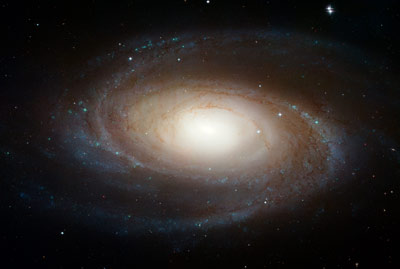The Atheist Cosmological Argument

In my past writings, I’ve made it a hobby to call attention to potent, but often overlooked, reasons to believe that atheism is true. Two of these that I’ve written about are the argument from mind-brain unity and the argument from locality. In the last few months, I’ve come to realize that there’s another powerful argument for atheism that doesn’t get as much attention as it should, and I want to discuss it today.
As creationists have brought upad nauseam, the Earth is very well suited for life like ours. And that’s true, and not at all surprising to an atheist: in a natural universe, we’d expect that beings like us would exist only where natural laws permit us to exist. If we found ourselves in a place where the laws of physics weren’t conducive to our continued existence, we’d have reason to suspect supernatural intervention.
Of course, to decide how likely our existence is, you also have to take the background probabilities into account. If the Earth was the only life-supporting planet in a very small universe, as the medieval cosmologies taught and expected, then we might well suspect that someone had rigged the circumstances in our favor. What we need, to have a planet well-suited for life in a godless universe, is a large quantity of chance resources – in other words, enough time and space, enough opportunities to get it right, that eventually it would be reasonable for our number to turn up in the cosmic lottery.
To put it another way: If there’s no intelligent supernatural creator tweaking the laws of physics to create a life-friendly cosmos, there’s only one other scenario we’d have any right to expect: a very old, vast, and chaotic universe, one where it’s plausible that a planet like ours and living beings like us could come about by chance.
And guess what? As our scientific knowledge expands, we’ve found we live in a universe that’s very old – 13.7 billion years, according to data like WMAP; that’s very vast – we see billions of galaxies, and the full number may even be infinite; and that’s highly chaotic – we observe stars of every possible size and variety, from red dwarfs to luminous blue supergiants; and the better our observational techniques become, the more we find that many of them have planetary systems, also of every kind and configuration. Some planets are icy and dark, orbiting very far from their parent stars; some are boiling cauldrons orbiting very close in. Some are rocky, some are gas giants, some may be completely covered with water, and some may even be solid diamond.
Out of this vast profusion of planets, it’s entirely reasonable to expect that a rare few would have everything right: the right distance from their parent star, the right material composition, the right amount of liquid water, and all the other factors necessary for life to arise and thrive. We are the lucky ones, because we wouldn’t be here if we weren’t. Thus, the well-suitedness of our planet – compared to all the other planets that aren’t – isn’t an argument for theism, but a potent argument for atheism. The universe we live in is what we’d expect a godless universe to look like, or to put it another way, this hypothesis has superior explanatory power: atheism predicts a universe just like the one we see.
Although some religious believers have come up with post-hoc excuses for why God would have created a universe that was so vast, chaotic and mostly empty, the fact is that, before the truth was known, the major religions of the West all imagined small, human-centered cosmoses. (Granted, a few Eastern belief systems came closer to the truth.) And we shouldn’t let them forget that. The universe we live in makes far more sense if there is no higher power, and that’s a conclusion we can and should hammer on.
Image credit: HubbleSite





